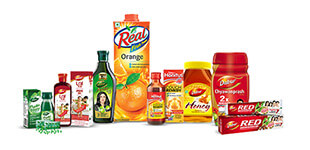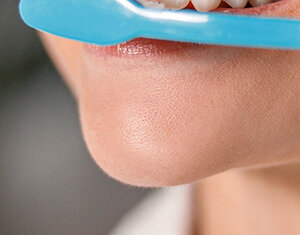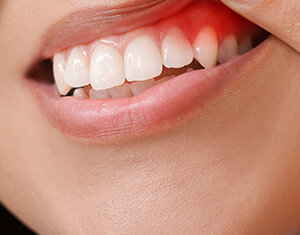Blog
The Role Of Toothpaste In Managing Gingivitis: How It Can Help
Oral Care

Having inflamed and tender gums can be quite uncomfortable. Gingivitis, which is a common gum condition, is often caused by poor plaque removal. Poor oral hygiene can cause plaque bacteria to irritate the gums, leading to swelling, redness, and bleeding. If left untreated, gum disease can cause further complications.
However, by adopting good oral hygiene habits, gingivitis can be prevented. Keep reading to understand how making thoughtful toothpaste choices can make a difference.
Understanding Gingivitis Triggers
Gingivitis occurs when plaque is left untreated along the gum line. If not removed regularly, plaque can harden into tartar, further inflaming gums. To prevent this from happening, it is important to diligently brush and floss to remove bacteria before they cause swelling. Regular visits to a dentist for professional cleanings are also recommended to remove tartar from hard-to-reach areas.
Toothpaste with antibacterial ingredients like stannous fluoride or oxygenating agents such as hydrogen peroxide have been clinically proven to combat gingivitis. However, it's important to remember that consistent brushing and flossing habits are key to preventing gum problems. Pair these habits with toothpaste that is gentle on the gums for optimal gum health.
Managing the Best Toothpaste for Gum Disease
For those struggling with gingivitis, swollen, sensitive gums that bleed when brushing; choose the best toothpaste for gum disease with fluoride, triclosan, and essential oils like tea tree oil. Brush twice a day and continue using it to maintain healthy gums. Good oral hygiene and regular dental check-ups can also help prevent and manage gingivitis.
Examining Gingivitis
Gingivitis causes red, irritated gums due to a buildup of plaque bacteria along the gumline. As plaque accumulates, inflammation follows, producing common symptoms like pain, bleeding, and halitosis. Left unaddressed, bouts of inflammation may increase severity, necessitating professional cleaning. Without proper plaque removal habits, recurrence remains likely. The choice of toothpaste factors greatly into effective gingivitis management.
The Significance of Toothpaste in Gingivitis Management
Gingivitis, a common gum infection, sparks inflamed tissue and bleeding when neglected plaque builds along the gumline over time. Swelling and discomfort may persist and worsen if left unchecked. However, strategic toothpaste selection helps control mild infection while soothing symptoms.
Formulas targeting toothpaste for gingivitis contain specific ingredients with antibacterial and anti-inflammatory properties to combat the underlying infection and relieve associated irritation simultaneously. Pairing thoughtful toothpaste choices with diligent brushing and flossing habits paves the path for improved gum health.
Choosing the Right Toothpaste
Certain toothpastes feature active ingredients uniquely formulated to combat gum disease. Options like Dabur Meswak utilises powerful antimicrobial botanical extracts. The toothpaste contains Babool, an Ayurvedic herb with proven antibacterial efficacy against gum infection.
Supported by the gum disease toothpaste's trio of antimicrobial, protective, and astringent actions, the Babool extract battles harmful plaque bacteria to soothe inflammation simultaneously. Other antiseptic ingredients in toothpaste for gingivitis-targeted include tea tree oil, eucalyptus, and menthol for additional soothing and germ-fighting benefits.
Prevent Gingivitis from Returning
The foremost line of defence against worsening gingivitis involves thoroughly eliminating its causes. Consistent plaque removal through brushing, flossing, and professional cleanings clears the gumline of bacteria and enables healing.
Here, using specially formulated gum problem toothpaste like Dabur Babool proves paramount through added antimicrobial, antioxidant, and anti-inflammatory activity originating from the Babool botanical extract. This Ayurvedic paste, therefore, fights infection and eases irritation simultaneously.
Conclusion
Effectively managing gingivitis relies on properly removing plaque bacteria buildup through brushing, flossing, and professional cleaning alongside the strategic use of specialised toothpaste. Formulas with antibacterial ingredients prevent infection recurrence and ease inflammation simultaneously. Associated with vigilant oral care habits, informed toothpaste choices help control mild gum disease, supporting healthy smiles. Sustaining diligent plaque removal remains key to combating gingivitis long-term.
FAQs
-
What causes gingivitis?
Gingivitis is often caused by plaque buildup, a sticky film composed of bacteria that accumulates along the gum line. This bacterial accumulation results in gum inflammation and irritation.
-
What toothpastes help manage gingivitis?
Toothpaste with antibacterial ingredients like stannous fluoride, oxygenating agents like hydrogen peroxide, or botanical extracts like babool have properties that combat gum infection and inflammation simultaneously.
-
How does Babool toothpaste help with gingivitis?
Babool toothpaste contains the Ayurvedic babool botanical extract, which has antimicrobial, anti-inflammatory, and astringent properties shown to fight plaque bacteria while soothing irritated gums.
-
Why are consistent habits important for gingivitis?
While therapeutic toothpaste can help manage gingivitis, consistent oral hygiene habits like brushing and flossing remain essential to physically clear bacteria and enable gum healing.
-
What is the key to effectively managing gingivitis long-term?
Combating gingivitis, in the long run, requires properly removing plaque buildup through dedicated home care habits and professional cleaning alongside the strategic use of toothpaste with antibacterial, anti-inflammatory properties.























